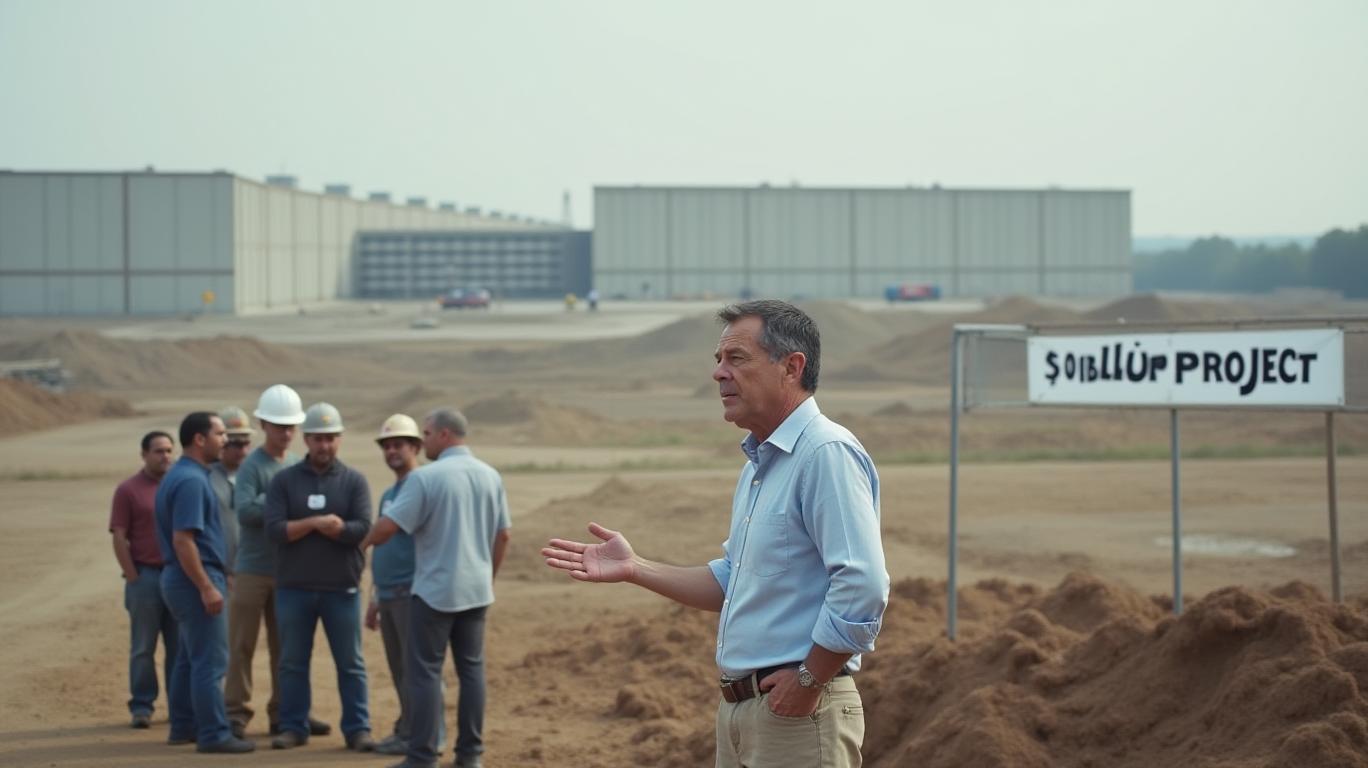Foxconn's $10 Billion Wisconsin Project Fails, Trump Tariffs Questioned
The once-promising project in Mount Pleasant, Wisconsin, has been left to decay, with overgrown weeds and a solitary glass dome structure standing as a testament to its abandoned state. This site was intended to be the "eighth wonder of the world," a $10 billion investment by Foxconn, a Taiwanese electronics manufacturer. The project was hailed by former U.S. President Donald Trump as a symbol of his administration's tariff policies, which aimed to bring manufacturing jobs back to the United States.
The project, announced in 2017, was expected to create thousands of jobs and revitalize the local economy. However, the ambitious plans have since faltered, with Foxconn significantly scaling back its investment and job creation targets. The company initially planned to build a massive LCD panel factory, but it has since shifted its focus to a smaller facility that will produce less advanced technology.
The failure of the project has raised questions about the effectiveness of Trump's tariff policies. The tariffs, which were imposed on a wide range of Chinese goods, were intended to encourage companies to move their manufacturing operations to the United States. However, the high costs associated with tariffs and the uncertainty surrounding trade policies have made it difficult for companies to make long-term investment decisions.
The abandoned project in Mount Pleasant serves as a stark reminder of the challenges facing the U.S. manufacturing sector. Despite the Trump administration's efforts to bring jobs back to the United States, many companies have struggled to compete with lower-cost producers in other countries. The high cost of labor and regulations in the United States, combined with the uncertainty surrounding trade policies, have made it difficult for companies to invest in new manufacturing facilities.
The failure of the Foxconn project also highlights the risks associated with relying on foreign investment to drive economic growth. While the project was initially seen as a boon for the local economy, the scaled-back plans have left many residents disappointed and uncertain about the future. The project's failure has also raised questions about the role of government in promoting economic development and the effectiveness of incentives offered to attract foreign investment.
In conclusion, the abandoned Foxconn project in Mount Pleasant serves as a cautionary tale about the challenges facing the U.S. manufacturing sector and the risks associated with relying on foreign investment to drive economic growth. The failure of the project has raised questions about the effectiveness of Trump's tariff policies and the role of government in promoting economic development. As the United States continues to grapple with these challenges, it will be important for policymakers to consider new approaches to support the manufacturing sector and promote long-term economic growth.

Stay ahead with real-time Wall Street scoops.
Latest Articles
Stay ahead of the market.
Get curated U.S. market news, insights and key dates delivered to your inbox.



Comments
No comments yet